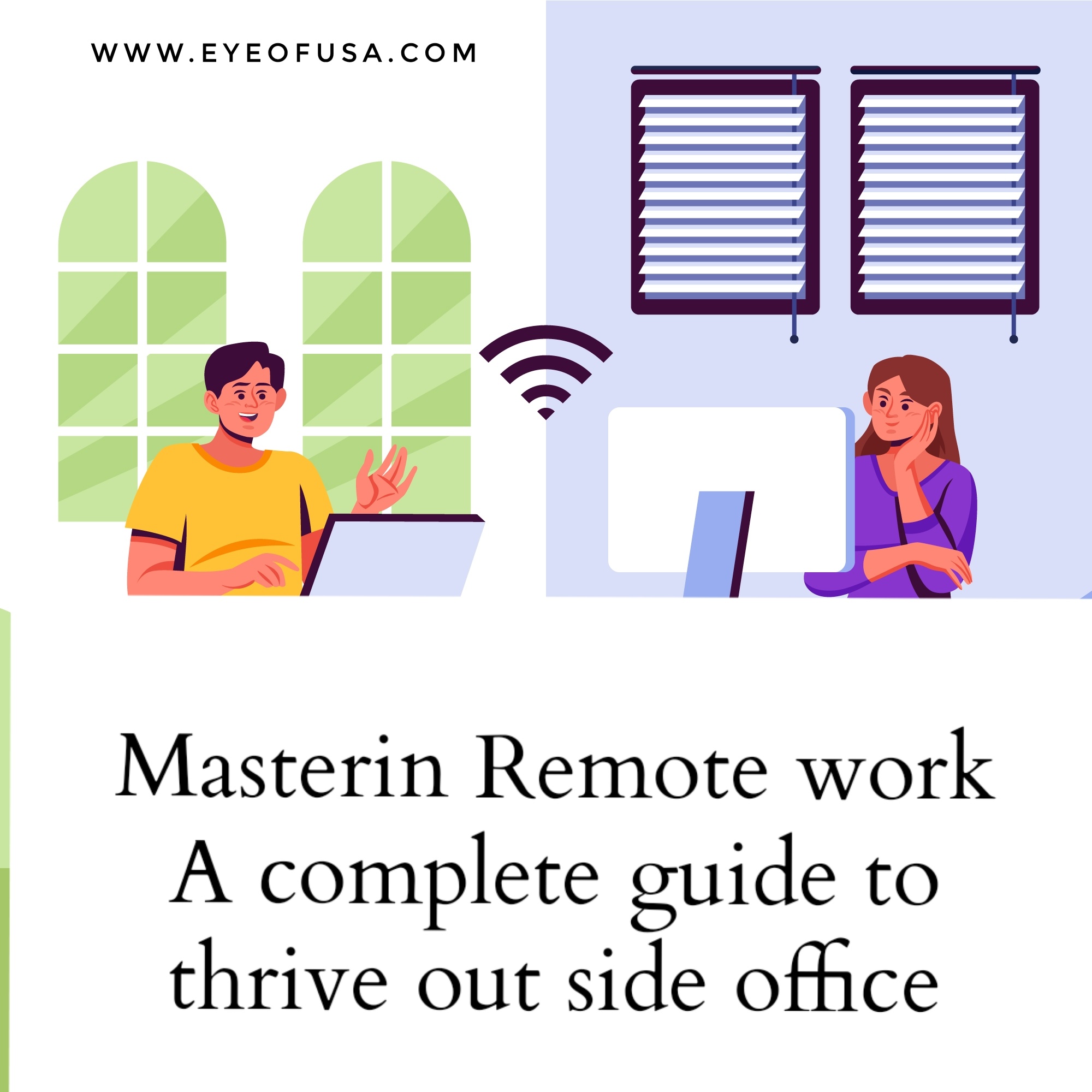
The Complete Guide to Remote Work: Benefits, Challenges, and Tips
What Is Remote Work?
Q: What does remote work mean?
Remote work allows professionals to perform their jobs outside traditional office spaces, whether from home, coworking spaces, or even on the go. With the help of technology like video calls, cloud-based tools, and messaging apps, teams can collaborate seamlessly from anywhere.
Q: Why is remote work gaining popularity?
Remote work has grown rapidly due to advancements in technology and changing workforce preferences. Employees love the flexibility and improved work-life balance, while employers benefit from cost savings and access to global talent.
Top Benefits of Remote Work
Q: How does remote work benefit employees?
- Flexibility: Create a schedule that works for you.
- No Commute: Save time and money while reducing stress.
- Work-Life Balance: Spend more time with family and on personal activities.
- Increased Focus: Customize your environment for optimal productivity.
Q: What’s in it for employers?
Reduced office costs and overhead expenses.
Broader access to skilled professionals worldwide.
Higher employee satisfaction and retention rates.
Challenges of Remote Work and How to Overcome Them
Q: What challenges do remote workers face?
- Isolation: Working alone can feel lonely.
- Distractions at Home: Family responsibilities or household chores can interfere with focus.
- Communication Gaps: Misunderstandings can arise when teams aren’t face-to-face.
- Blurred Boundaries: It can be hard to separate work and personal life.
Q: How can these challenges be managed?
Stay Connected: Schedule regular virtual meetings and check-ins with coworkers.
Set Boundaries: Communicate work hours to family and create a dedicated workspace.
Use Tools Wisely: Rely on collaboration platforms like Slack, Zoom, and project management tools to stay organized.
Practice Self-Care: Take breaks, exercise, and set aside time for hobbies to avoid burnout.

The Best Tools for Remote Work
Q: Which tools are essential for remote work success?
Communication: Slack, Zoom, Microsoft Teams.
Task Management: Trello, Asana, Monday.com.
File Sharing: Google Drive, Dropbox.
Time Management: Toggl, Clockify.
Cybersecurity: VPNs, password managers, and antivirus programs.
Q: How do these tools help?
They make it easier to collaborate, organize projects, track time, and secure data, ensuring that teams remain productive and efficient.
How to Stay Productive While Working Remotely
Q: What are the best productivity tips for remote workers?
- Create a Dedicated Workspace: Set up a quiet area with minimal distractions.
- Stick to a Routine: Start and end your day at consistent times.
- Set Priorities: Plan your tasks with a daily or weekly to-do list.
- Take Breaks: Follow techniques like the Pomodoro method to stay fresh.
- Stay Connected: Communicate frequently with your team to stay aligned.
Q: How can remote workers avoid burnout?
Take regular breaks to recharge.
Clearly define when your workday ends to maintain balance.
Incorporate activities like exercise, reading, or hobbies into your daily routine.
The Future of Remote Work
Q: Is remote work a long-term trend?
Yes, remote work is here to stay. Many companies are adopting hybrid models that combine in-office and remote work, giving employees flexibility while maintaining collaboration.
Q: What trends are shaping the future of remote work?
- Advanced Technology: AI, virtual reality, and improved collaboration tools will enhance remote work experiences.
- Fully Remote Companies: Businesses in industries like tech, marketing, and education are increasingly going 100% remote.
- Focus on Employee Well-Being: Companies are investing in resources to ensure remote workers stay healthy and productive.
Frequently Asked Questions About Remote Work
Q: What industries offer the best remote work opportunities?
Technology, customer service, marketing, and education are some of the leading industries for remote jobs.
Q: How can I transition to remote work?
Update your resume to highlight skills like communication, time management, and proficiency in remote tools.
Search for remote job openings on platforms like Remote.co, We Work Remotely, and LinkedIn.
Q: Are remote workers as productive as office workers?
Yes, research shows that remote workers are often more productive because they have fewer distractions and can structure their work environment to suit their needs.
Conclusion
Remote work is transforming the way we live and work. While it comes with its challenges, the benefits of flexibility, cost savings, and work-life balance make it an appealing option for both employees and employers. By using the right tools and strategies, anyone can succeed in this growing work model.

